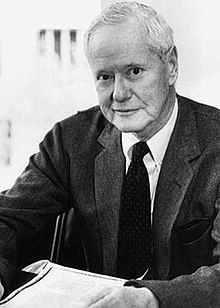Self-Fulfilling Prophecy in Psychology (Incl. Examples +PDF)
 Have you ever made a prediction about your life that came true?
Have you ever made a prediction about your life that came true?
You may not believe yourself to be a fortuneteller, but you’ve likely found that you can sometimes be surprisingly accurate in your predictions.
For instance, you might predict that a project you are working on will turn out exceedingly well, and feel confident in your ability to foresee the future when your hard work pays off and your project is received positively.
Alternatively, you might expect that a speech you have to give at a work event will go terribly, and thus you feel no surprise when you stutter, mumble, and frequently forget your next point while speaking.
Although you could take these instances as evidence that you know yourself and your abilities quite well (and this can be true), you might not think about the effects your expectations have on your behavior.
When our beliefs and expectations influence our behavior at the subconscious level, we are enacting what is known as a self-fulfilling prophecy.
In this article, we’ll explore what self-fulfilling prophecies are, how they play a role in psychology and sociology, and how they can worsen mental health disorders like depression.
Before you read on, we thought you might like to download our three Positive Psychology Exercises for free. These science-based exercises will explore fundamental aspects of positive psychology, including strengths, values and self-compassion and will give you the tools to enhance the wellbeing of your clients, students or employees.
This Article Contains:
- What is a Self-Fulfilling Prophecy?
- Self-Fulfilling Prophecy in Psychology
- Self-Fulfilling Prophecy in Sociology: A Look at the Theory of Robert Merton
- Rosenthal and the Pygmalion Effect
- The Cycle of Self-Fulfilling Prophecies
- Self-Fulfilling Prophecy and Depression
- Examples of Self-Fulfilling Prophecies
- How Does It Shape Communication?
- 6 Self-fulfilling Prophecy Quotes
- Book Recommendations + PDFs
- A Take-Home Message
- References
What is a Self-Fulfilling Prophecy?
A self-fulfilling prophecy is a belief or expectation that an individual holds about a future event that manifests because the individual holds it (Good Therapy, 2015).
For example, if you wake up and immediately think—perhaps for no particular reason at all—that today is going to be a terrible day, your attitude might make your prediction come true. You may unconsciously work to affirm your belief by ignoring the positive, amplifying the negative, and behaving in ways that are unlikely to contribute to an enjoyable day.
This concept appears regularly in culture and art, and plenty of examples of it can be found in literary works.
One of the classic examples of a self-fulfilling prophecy comes from the Greek story of Oedipus. In the story, Oedipus’s father Laius is warned that his son will eventually kill him. To avoid meeting this fate, he abandons his son and leaves him to die.
Oedipus was found and raised by foster parents, under the assumption that they were his real parents. One day, he is also confronted with a dire warning—that he will kill his father and marry his widowed mother. Of course, Oedipus has no wish to kill the man he believes is his father or marry the woman he believes is his mother, so he abandons his home and foster parents and heads off to the city.
In the city, he meets a stranger and ends up in a fight with him. Once Oedipus kills the strange man, he marries his widow. He later learns that the man he killed was his actual father and that his new bride is actually his mother. By trying to avoid fate, both Laius and Oedipus manifested the prophecies.
This compelling tale helped the self-fulfilling prophecy become a popular trope in literature and film, but it’s also a much-researched concept in psychology.
Self-Fulfilling Prophecy in Psychology
Psychologists have found strong evidence for the impact of our beliefs and expectations on outcomes, particularly when we are convinced that our predictions will manifest, even when we aren’t aware that we hold the expectation.
A commonly understood example of a self-fulfilling prophecy in psychology is what is known as the placebo effect (Isaksen, 2012). The placebo effect refers to the improvements in outcomes measured in subjects of scientific studies or clinical trials, even when the participants did not receive any meaningful treatment. The participants’ belief effects the “treatment” that they experience.
This effect was discovered during clinical trials and can be so strong that new measures were put in place to account for its impact on an experiment’s findings. Research on the placebo effect has proven that belief can be a very powerful thing.
Self-Fulfilling Prophecy in Sociology: A Look at the Theory of Robert Merton

Merton was born in 1910 to poor Eastern European immigrants and was raised in Philadelphia, where he became fascinated with sociology after attending a class at Temple College.
After graduating, he moved on to Harvard University and began studying under some of the leading sociologists of the time.
By his second year at Harvard, Merton was already publishing with some of these leading sociologists, and he eventually became one of the most influential social scientists himself (Calhoun, 2003).
Perhaps it was his upbringing in one of the slums of South Philadelphia that informed his theory of the self-fulfilling prophecy; after all, his is one of the classic “American dream” trajectories that is usually accompanied by a strong conviction in one’s talents and abilities.
Merton coined the term “self-fulfilling prophecy,” defining it as:
“A false definition of the situation evoking a new behavior which makes the originally false conception come true.”
Merton, 1968, p. 477
In other words, Merton noticed that sometimes a belief brings about consequences that cause reality to match the belief. Generally, those at the center of a self-fulfilling prophecy don’t understand that their beliefs caused the consequences they expected or feared—it’s often unintentional, unlike self-motivation or self-confidence.
These prophecies can involve intrapersonal processes (i.e., an individual’s belief affects his or her own behavior) and/or interpersonal processes (i.e., an individual’s belief affects another’s behavior).
The placebo effect is one example of an intrapersonal self-fulfilling prophecy: expectations for a spouse to cheat contribute to that spouse actually cheating (Biggs, 2009).
Although self-fulfilling prophecies can manifest in a variety of ways, Merton was most interested in understanding how the phenomenon plays out in racial prejudice and discrimination. He noticed that people with racial prejudices were likely to treat people of other races in a way that led to a confirmation of their prejudices.
For example, those who considered people of color to be intellectually inferior avoided talking to them, giving no chance to prove the racist individual wrong.
Unsurprisingly, when a whole group of people is treated as if they are intellectually inferior, they are not given the same opportunities afforded to others that allow them to build their knowledge and improve their abilities.
When such groups of people know they are viewed as “other” or “lesser than,” then the average performance of the discriminated group is lower. It is an unfortunate cycle.
Rosenthal and the Pygmalion Effect
These studies hinted at the idea that not only do our expectations for ourselves influence outcomes, our expectations of others also have an impact on our thoughts, feelings, and behavior toward them.
A classic experiment by Robert Rosenthal and Lenore Jacobsen in the 1960s provided evidence for this idea. Findings from this experiment (and other subsequent explorations) showed that teacher expectations of students influenced student performance more than any differences in talent or intelligence.
The researchers conducted their experiment at a public elementary school, where they chose a group of children at random and told teachers that these students had taken the Harvard Test of Inflected Acquisition and were identified as “growth-spurters.” They explained that these children had great potential and would likely experience a great deal of intellectual growth within the next year.
They gathered performance data on all of the students and compared the “ordinary” students’ gains with the gains of the “growth-spurters.” The researchers found that the students whom the teachers expected to do well (the randomly chosen “growth-spurters”) actually did show greater improvement than their peers.
Since the children were not told of their false Test of Inflected Acquisition results, the only explanation for these outcomes is that the teachers’ expectations influenced student performance.
This effect, known as the Pygmalion Effect, is an example of a self-fulfilling prophecy involving interpersonal processes. As Rosenthal put it:
“When we expect certain behaviors of others, we are likely to act in ways that make the expected behavior more likely to occur.”
Rosenthal & Babad, 1985
Self-fulfilling prophecy (Definition + Examples) – Practical Psychology
The Cycle of Self-Fulfilling Prophecies
It’s not hard to see that self-fulfilling prophecies can lead to cycles of thought and behavior—both good and bad.
When we believe something about ourselves, we are more likely to act in ways that correspond to our beliefs, thus reinforcing our beliefs and encouraging the same behavior.
Similarly, when we believe something about others, we may act in ways that encourage them to confirm our assumptions, thus reinforcing our beliefs about them.
We don’t think much about these cycles when the outcomes are positive, but we have a common term for these cycles when the outcomes are negative: vicious cycles.
A person who is constantly doubting his ability to perform at his job may inadvertently sabotage himself. Since he is sure his work is subpar, he may avoid putting much time and effort into it or avoid doing it altogether.
This results in a lack of practice and experience, which only serves to make his work even less competent, leading to even more self-doubt and even lower self-esteem.
The image to the right provides a visual of the cycle when interpersonal self-fulfilling prophecies are in play:
- First, we harbor a belief or set of beliefs about ourselves;
- These beliefs influence our actions towards others;
- Our actions toward others, shaped by our beliefs about them, impact their beliefs about us;
- Their beliefs cause them to act in ways consistent with those beliefs towards us, which reinforces our initial beliefs about ourselves.
This cycle can apply in many scenarios and situations, but it’s particularly easy to identify each step in situations like Rosenthal’s famous studies of the Pygmalion effect (although with an alteration to the first step):
- Teachers may have preconceived notions about some of their students—they believe some are inherently talented and promising students, while they see others as troublemakers or intellectually inferior;
- A teacher may inadvertently treat the “promising” students in ways consistent with their beliefs (e.g., offering them more help, encouraging them to do well) and treat the “troublesome” students in ways similarly consistent with their beliefs (e.g., deciding not to invest much effort into teaching them, allowing them to skate by with mediocre work);
- The students may come to see themselves in the same way their teacher does—the promising students feel confident and motivated, while the troublesome students feel unintelligent and inferior;
- The students might then act in ways that match their beliefs about themselves, reinforcing the teacher’s initial assumptions about them.
The cycle of self-fulfilling prophecies can be positive for the “promising” students, but the cycle can damage those who are assumed to be incompetent or lacking by themselves and/or by others.
Self-Fulfilling Prophecy and Depression

A person suffering from depression may hold some very negative thoughts about herself, thoughts like:
- “I’m worthless”;
- “I can’t function properly”;
- “I’m unlovable”;
- “No one likes me, they all think I’m a downer”;
- “Since no one likes me, I have no friends.”
Thoughts like “I’m worthless,” and “I can’t function properly” may persuade her to give up on self-development and to no longer add to her knowledge, improve her skills, or enhance her emotional resilience. “After all,” she thinks, “what does it matter? It won’t work anyway.”
If her thoughts continue this way for a prolonged period of time, she might find that she truly can’t function normally anymore. She may become too depressed to do even the most basic of functions, like speaking to others, making food, or showering.
Thoughts like “I’m unlovable,” “No one likes me, they all think I’m a downer,” and “Since no one likes me, I have no friends,” can easily transfer into reality. She may avoid interacting with others at all since she is sure they will not enjoy her company, leaving her with no friends.
She might interact with others but behave in a negative and unfriendly way since she is sure they will be unfriendly or unwelcoming to her, causing those she interacts with to form opinions consistent with her negative thoughts.
Depression is particularly insidious because of cycles such as these. Dr. Allan Schwartz gave this description of the vicious cycles of depression:
“All of us have to clear ourselves of this ‘poor me’ way of thinking. It is not helpful and not realistic. Negative thinking is contagious because it leads to negative talk and the self-fulfilling prophecy. If you convince yourself that your life is awful then you go about making your life awful”
Schwartz, 2010 para. 7
Examples of Self-Fulfilling Prophecies
In addition to the examples listed above, the phenomenon of self-fulfilling prophecies can be seen in plenty of other areas of life.
Examples in two such areas are listed below.
Examples in the Workplace
Perhaps the most salient example of self-fulfilling prophecies in the workplace can be seen in one of the first workplace interactions—the job interview. Imagine two people with the same qualifications: the same education, the same experience, the same skills. One is supremely confident in her ability to ace the interview, while the other is feeling insecure about his interview skills and predicts he will not get the job offer.
The confident individual might enter into the interview with a smile and answer every question with grace, while the more insecure individual might stumble through their answers and doubt their qualification for the job.
Who do you think is more likely to get the job? Clearly, the interviewee who believes in themselves and acts on that belief is more likely to get a job offer than the interviewee who expects to fail.
This prophecy can play out even after someone gets hired. If an employee is assigned a new task that she feels is outside of her wheelhouse, she might think to herself, “There’s no way I can do this. I’m going to fail.” The employee might then unconsciously put less effort into the project, thinking it’s a lost cause. She might avoid asking others for help since she believes the project is doomed anyway.
When the project indeed fails, she might think to herself, “I was right, I just couldn’t do this task,” without realizing that her behavior all but guaranteed that the project would fail.
The workplace can also act as host to interpersonal processes that result in self-fulfilling prophecies. Imagine that the employee in the last example has a different attitude about her ability to complete the project. She may feel nervous about taking on a new task that will require her to learn and practice new skills, but she knows she’s capable.
However, her manager is less certain. He decides not to invest too much time and effort into the project since he doesn’t think it will turn out well. He neglects to connect his employee with the people she needs to talk to and refuses to enroll her in the training that will help her develop those required skills since he feels it will be a waste of her time and company money.
Because she does not receive the resources she needs to complete the project successfully, it is indeed doomed to fail—but it is the manager who doomed it, not the employee herself.
Examples in Relationships

If a woman starts dating someone under the assumption that they are not really “relationship” or “marriage material,” she will likely not take the relationship seriously and refrain from investing much time or effort into it.
This lack of investment may cause her partner to have doubts, and feel that she is distant and unavailable, thus why should they stick around and invest in hard conversations?
When her partner leaves, she might think that she was ultimately proven right—the partner wasn’t relationship material. However, her assumption likely influenced her behavior to not expect much and that initial seed caused the relationship to flounder.
On a more positive note, a self-fulfilling prophecy can also lead to good outcomes in relationships. If a man begins dating a man whom he feels strongly connected to, he may feel that this person is “the one.” Since he expects the relationship to last, he treats his partner with love and respect; then he might invest more time and energy into making it fulfilling and partners.
This love and attention ensure that his partner is satisfied with the relationship as well, and causes his partner to invest a similar level of time and energy into the relationship.
Because his prediction that the relationship will be a long and happy one leads him to behave in a way that supports that prediction, the outcome he predicted is manifested.
How Does It Shape Communication?

When we hold internal beliefs or expectations or make predictions about someone, we often behave toward them in a manner consistent with those beliefs and expectations.
For example, if we are told that someone we are about to meet is a wonderful and interesting person with a sparkling personality, we will likely make sure we talk with them, be friendlier than usual, and ask lots of questions. When they sense our interest in them, they will likely return that interest and give full, engaging answers to our questions. Thus, their behavior follows our actions.
Whether we are consciously aware of it, our beliefs and expectations of someone will seep into our communications with them.
This phenomenon can be seen in how stereotypes are formed and reinforced. An individual may be told about how people of a certain race behave, and then form a global assumption about all people of that race.
The next time they see someone of the same race, they will likely treat them as a person who behaves according to their assumption. It can be dangerous, in this way, as a social issue in need of mitigation.
From research on the Pygmalion effect, we know that when individuals are treated as if they are hardworking and capable people, they are more inclined to work hard and believe in their own capability.
Conversely, when people are treated as unfriendly or intellectually inferior, they are more likely to act in an unfriendly manner or to doubt their intelligence and keep their deeper thoughts to themselves (Aaronson, 2005).
6 Quotes About Self-Fulfilling Prophecies
Sometimes all we need to remind ourselves of a simple but elusive truth, often summarized by a good quote. Read the quotes below to help you remember the importance of your own beliefs and expectations about your abilities.
“It is our attitude at the beginning of a difficult task which more than anything will affect a successful outcome.”
William James
“Whatever we expect with confidence becomes our own self-fulfilling prophecy.”
Brian Tracy
“If you expect the battle to be insurmountable, you’ve met the enemy. It’s you.”
Khang Kijarro Nguyen
“Whether you think you can or you think you can’t, you’re right.”
Henry Ford
“If men define situations as real, they are real in their consequences.”
W.I. Thomas
“The self-fulfilling prophecy is, in the beginning, a false definition of the situation, evoking a new behavior which makes the originally false conception come true. The specious validity of the self-fulfilling prophecy perpetuates a reign of error.”
Robert K. Merton
Book Recommendations + PDFs
If this piece sparked your interest in learning more about self-fulfilling prophecies and the Pygmalion Effect, give these books a try:
- Self-Fulfilling Prophecy: A Practical Guide to Its Use in Education by Robert T. Tauber (Amazon);
- Self-Fulfilling Prophecies: Social, Psychological, and Physiological Effects of Expectancies by Russell A. Jones (Amazon);
- Your Life is a Self-Fulfilling Prophecy: Timeless Wisdom for Modern Teens by M. E. Forbes (Amazon);
- Social Perception and Social Reality: Why Accuracy Dominates Bias and Self-Fulfilling Prophecy by Lee Jussim (Amazon);
- How the Economy Works: Confidence, Crashes, and Self-Fulfilling Prophecies by Roger E. A. Farmer (Amazon);
- Pygmalion in the Classroom: Teacher Expectation and Pupils’ Intellectual Development by Robert Rosenthal and Lenore Jacobson (Amazon).
For a quicker overview of this phenomenon than can be found in a book, check out these journal articles on self-fulfilling prophecies:
- “The Self-Fulfilling Prophecy” by Robert Merton (article);
- “The Self-Fulfilling Prophecy in Close Relationships” by Geraldine Downey, Antonio L. Freitas, Benjamin Michaelis, and Hala Khouri (article);
- “Social Perception and Social Reality: Why accuracy dominates bias and self-fulfilling prophecy by Lee Jussim (article);
- “Self-Fulfilling Prophecy: A Literature Review” by Nidhi Sharma and Keshav Sharma (article)
A Take-Home Message
The self-fulfilling prophecy is certainly one of those concepts that is meaningful in an academic context and in a personal context.
Now that you know about how our beliefs and assumptions can impact our own behavior and the behavior of those around us, be sure to keep this phenomenon in mind—especially in your communication with others and in your own self-talk.
Negative thoughts can become reality, but the good news of the self-fulfilling prophecy is that positive thoughts can become reality as well.
What are your thoughts on self-fulfilling prophecies? Do you have any examples of self-fulfilling prophecies that have played out for you? Let us know in the comments below. We would love to explore this topic more with you.
We hope you enjoyed reading this article. Don’t forget to download our three Positive Psychology Exercises for free.
- Aaronson, L. (2005). Self-fulfilling prophecies: Expectations of stereotypes will come to pass if people believe in them. Psychology Today. Retrieved from https://www.psychologytoday.com/us/articles/200503/self-fulfilling-prophecies
- Biggs, M. (2009). Self-fulfilling prophecies. In P. Bearman & P. Hedstrӧm (Eds.) The Oxford handbook of analytical sociology (pp. 294-314). Oxford, UK: Oxford University Press.
- Calhoun, C. (2003). Robert K. Merton remembered. American Sociological Association. Retrieved from http://www.asanet.org/sites/default/files/savvy/footnotes/mar03/indextwo.html
- Good Therapy. (2015). Self-fulfilling prophecy. Good Therapy PsychPedia. Retrieved from https://www.goodtherapy.org/blog/psychpedia/self-fulfilling-prophecy
- Isaksen. J. V. (2012). The self-fulfilling prophecy. Popular Social Science. Retrieved from http://www.popularsocialscience.com/2012/12/27/the-self-fulfilling-prophecy/
- Merton, R. K. (1948). The self-fulfilling prophecy. The Antioch Review, 8, 504-521.
- Rosenthal, R., & Jacobson, L. (1968). Pygmalion in the classroom. The Urban Review, 3, 16-20.
- Rosenthal, R., and E. Y. Babad. (1985). Pygmalion in the gymnasium. Educational Leadership, 43, 36–39.
- Schwartz, A. (2010). Woe is me, the self fulfilling prophecy. MentalHelp.net – Disorders & Issues. Retrieved from https://www.mentalhelp.net/articles/woe-is-me-the-self-fulfilling-prophecy/
- Tartakovsky, M. (2015). How to step pessimistic self-fulfilling prophecies from shaping your life. Psych Central. Retrieved from https://psychcentral.com/blog/how-to-stop-pessimistic-self-fulfilling-prophecies-from-shaping-your-life/
Let us know your thoughts
Read other articles by their category
- Body & Brain (42)
- Coaching & Application (56)
- Compassion (26)
- Counseling (50)
- Emotional Intelligence (24)
- Gratitude (17)
- Grief & Bereavement (21)
- Happiness & SWB (39)
- Meaning & Values (25)
- Meditation (20)
- Mindfulness (44)
- Motivation & Goals (43)
- Optimism & Mindset (32)
- Positive CBT (25)
- Positive Communication (20)
- Positive Education (44)
- Positive Emotions (30)
- Positive Leadership (13)
- Positive Psychology (32)
- Positive Workplace (33)
- Productivity (16)
- Relationships (42)
- Resilience & Coping (34)
- Self Awareness (20)
- Self Esteem (36)
- Software & Apps (22)
- Strengths & Virtues (30)
- Stress & Burnout Prevention (33)
- Theory & Books (44)
- Therapy Exercises (35)
- Types of Therapy (58)




What our readers think
Thank you for the article. I have gained more insight on the concept self-fulfilling. It makes me understand human belief on a particular action prompts a response which you believe the outcome would be.
I used the expression self-fulfilling prophecy during the course of a heated debate with my consultant. It caused a hiatus that I had not expected.
This article confirmed that I had in fact use the expression correctly.
Thank you for a comprehensive insight into the concept.
I forgot to say thank you for the article. I quite enjoyed the refresher in self fulfilling prophecy.
I wanted to know about self fulfilling prophecy because I am a very “senior” senior (86) with a smart watch. My watch has been telling me, based on my walking speed, length of step, symmetry and the amount of time that I have both feet on the ground, that my risk of falling in the next 12 months is high. I don’t want that to become a self fulfilling prophecy as I know that falls in seniors often forecasts dire results. I must work hard against this as I have caught myself thinking that I don’t need to do something because I probably won’t be here next season. (Cover the patio furniture against snow and ice so it will be in good shape next summer,as an example)
I really enjoyed this article, thank you. This and other articles are quickly making me realize the amount of negative situations I have personally manifested in my life due to a negative mindset.